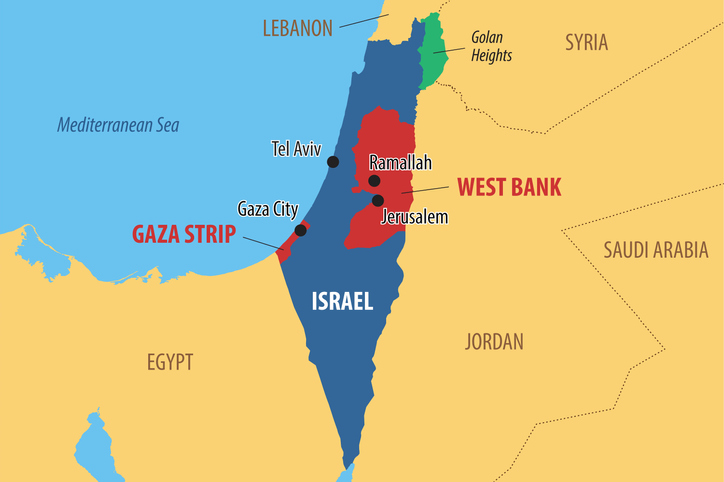Israel and Hamas conflict – the potential impact outside of its borders

Authored by Pool Re
“It has always been the case that lots of would-be-terrorists in the UK draw inspiration through their distorted understanding of what is happening in other countries.” – Ken McCallum, Director General of MI5, 2023.
The current conflict between Israel and Hamas has raised concerns that the episodes of horror taking place in the Middle East could send shockwaves throughout Europe and the UK: encouraging protest, inspiring extremism, and motivating individuals to conduct acts of terror. In a rare interview on 17 October 2023, the Director General of MI5 Ken McCallum revealed that there is a “sharpened concern” of multiple threats in the UK amidst the ongoing conflict. The UK’s national threat level, currently set at “substantial”, is under constant review to ensure that it remains appropriate.
It is no secret that global events can play a direct role in shaping the political climate and threat landscape of the UK. By way of example, in August of last year, violent riots broke out in Leicester following a cricket match between India and Pakistan. Instances of vandalism, assaults, and attacks on property involving members of Hindu and Muslim communities became the subject of online speculation and extremist narratives, inflaming community tensions further. A cricket match suddenly became the flashpoint for a much wider socio-political issue exploited by extremist actors in the UK and globally.
The attack on Israel by Hamas terrorists on 7 October 2023 and consequent military operations conducted by the Israeli Defence Forces are no doubt of far greater significance. The impact of the conflict on UK communities has been visceral, with thousands of individuals gathering across major cities to demonstrate support for different sides in the current conflict. Acts of antisemitism, Islamophobia, vandalism, and social tensions have been reported by police forces up and down the country and have raised questions as to whether current terrorism legislation is comprehensive enough to combat the blurred lines between free speech, extremism, and terrorism in the UK.
It should be no surprise that events in the Middle East are likely to inflame beliefs and deepen divisions; they could also motivate individuals to conduct attacks in the UK. Although there has been no direct link drawn between each event and the terror attacks in Israel and subsequent military action in Gaza, there have been two separate Islamist-inspired attacks in Europe since the conflict’s start; the murder of a teacher in France and a shooting in Belgium. Islamist terrorism remains the most significant terrorism threat to the UK and the current conflict is likely to embolden those who seek to cause harm to our country.
It is not only individuals who adhere to an Islamist ideology that this current conflict will likely have emboldened. Members of the Extreme Right-Wing are also likely to use the conflict to advance their own aims and online actors will almost certainly seek to propagate disinformation, sow division, and exploit individuals vulnerable to radicalisation. Furthermore, disinformation and uncorroborated reporting will only further confuse the blurred lines that currently exist between free speech, extremism, and terrorism offences.
The current conflict in Israel and Gaza shows no sign of immediate resolution, and its shockwaves are almost certainly going to be felt throughout the UK and the West for a significant period of time.
At a time of uncertainty, Pool Re will continue to monitor the situation objectively and analyse the conflict’s possible impacts on the UK going forward.
Intelligence Cut-Off Date: 23 October 2023





